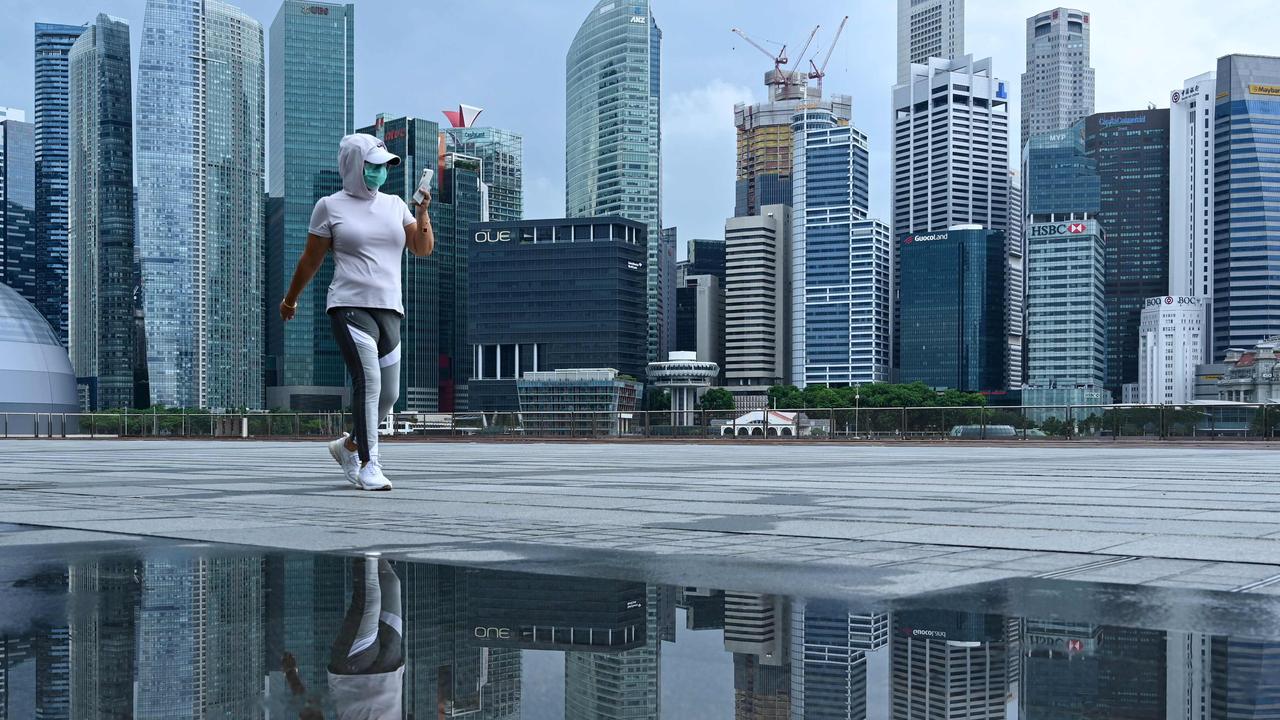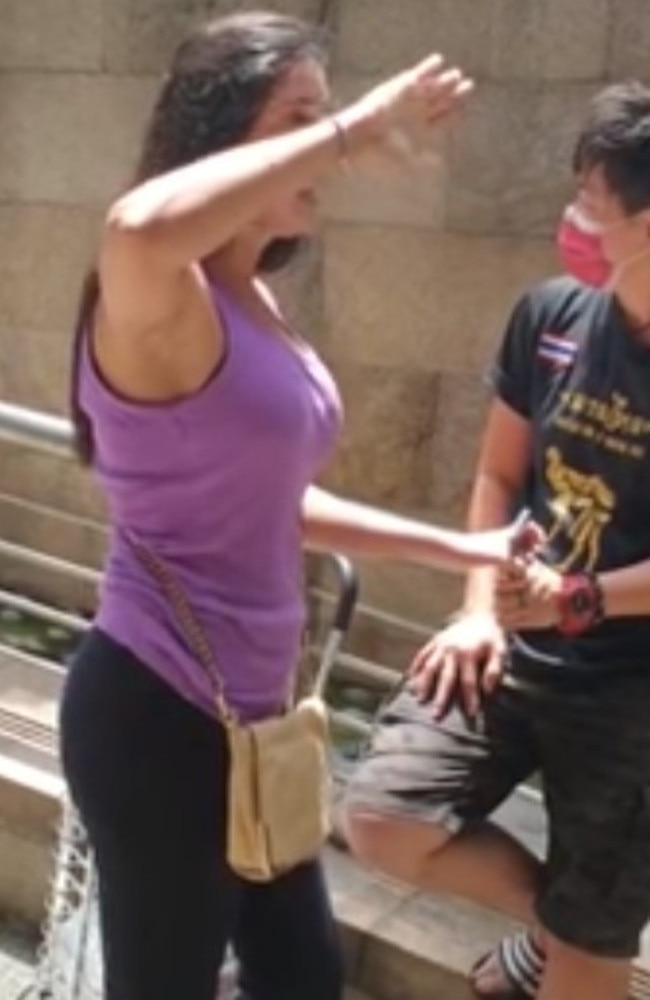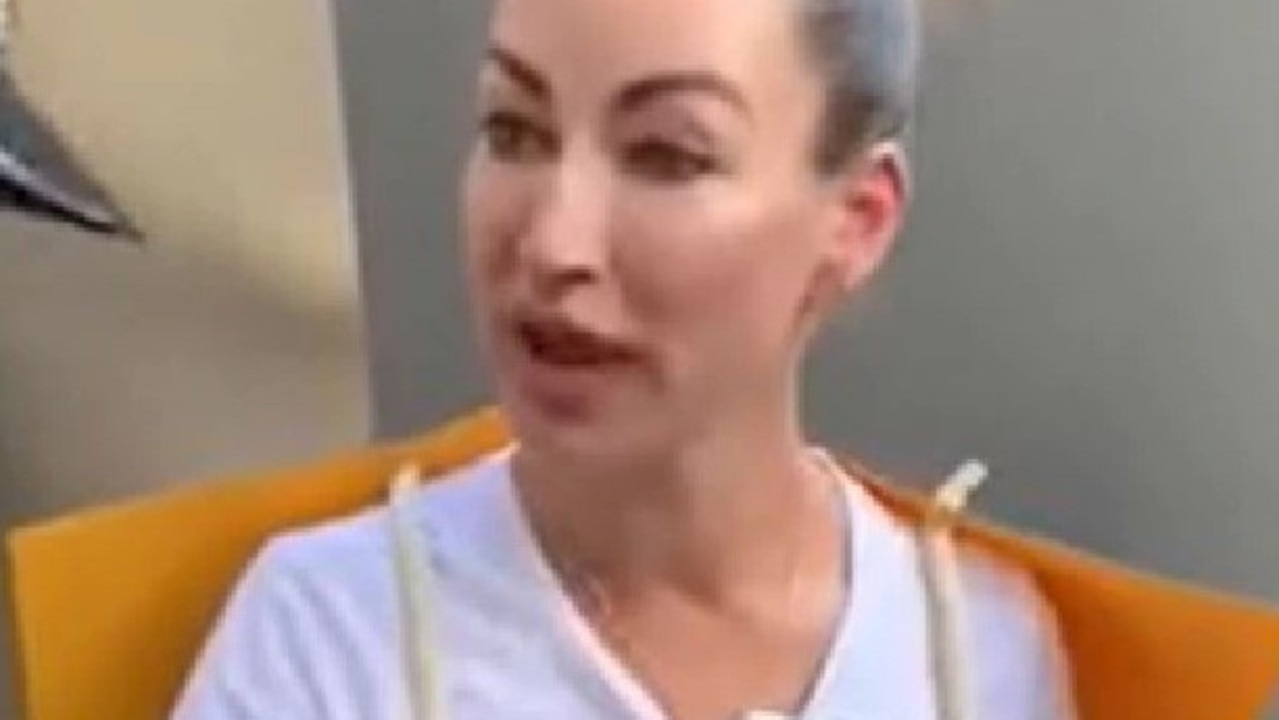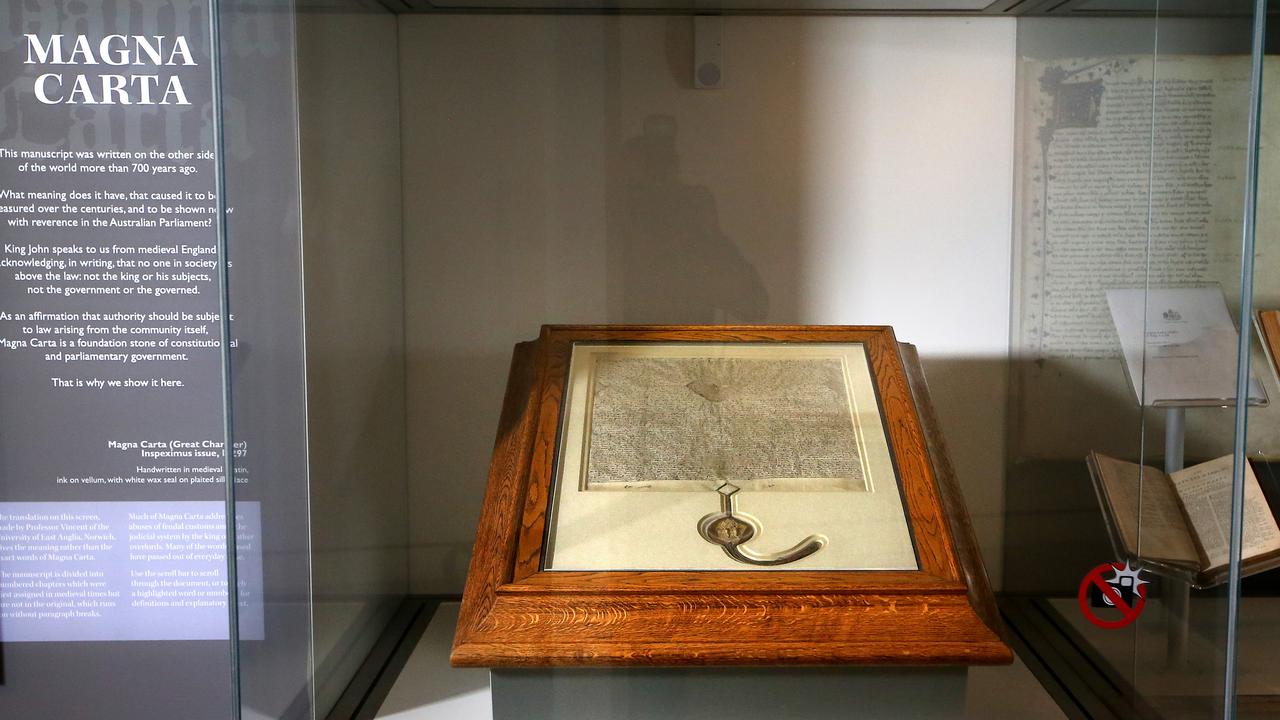Coronavirus causes rise in bizarre ‘sovereign citizens’ movement
It first surfaced in law-abiding Singapore earlier this year. Now this “extreme” new movement is spreading around the world.
From baseless concerns about 5G technology to elaborate schemes involving that bloke that made a motza out of Microsoft, the coronavirus pandemic has been fertile ground for conspiracy theorists.
However, it’s also shone a light on one of the most bizarre offshoots of the genre – the concept of the “sovereign citizen”.
Not the Queen, although she is indeed sovereign. But the idea that, if you so wish, you can choose what laws apply to you – if any do at all.
That theory had a loud and rowdy entrance into the coronavirus arena in normally law-abiding Singapore earlier this month.
Amid an outbreak of COVID-19 cases, the city-state mandated the wearing of masks in public. One woman, who reportedly had lived in Australia prior to Singapore, did not agree.
RELATED: Follow the latest coronavirus updates
RELATED: When your state will ease restrictions
On May 5, the woman was stopped by police after it’s alleged she failed to wear a mask when at a hawker market. Police said it wasn’t the first time. It’s also alleged the 40-year-old ate at a table in the food court which is on the current list of no-no’s.

‘I’M A SOVEREIGN’
In a video reportedly from the confrontation, the woman claimed she was “sovereign” and therefore was able to ignore the rules, according to Singapore’s Straits Times.
“I’m a sovereign … This is something people are not going to know what it is,” she said.
“It means I have nothing to do with the police, it means I have no contract with the police. They have no say over me.”
A man, who is off-screen, responded: “This doesn’t even make any sense. If you’re a person in Singapore, you have to follow the rules of Singapore.”
She was charged with one count of being a public nuisance and three counts of violating COVID-19 rules.
At a court hearing the next day, the newspaper reported the woman as saying she “extended my sovereign immunity”.
“I am a living woman and that is my only capacity in this matter.”
She was remanded at a mental health facility ahead of her next court appearance on May 19. A local Chinese newspaper reported she was a physiotherapist who had lived in Australia for 20 years.

It’s not the only time where the sovereign movement has potentially cropped up recently. Guess where else? On Pete Evans’ Instagram of course. Although not from the chef-cum-conspiracy theorist himself, but his followers.
On one of Evans’ posts, which claimed to show the links between pharmaceutical companies looking into COVID-19 vaccines, a follower implored people to “open our hearts and a stand together for sovereignty”.
At the recent anti-lockdown rallies in Sydney and Melbourne, banners referred to several key phrases and concepts used in the movement.
EXTREMIST MOVEMENT
So, what is it? Well, like many of the most recent far fetched theories, it stems from the US where there has always been a vocal minority who reject any form of overarching government.
The US-based Southern Poverty Law Centre lists the sovereign citizens movement as an extremist organisation.
“Sovereign citizens believe that they get to decide which laws to obey and which to ignore, and they don’t think they should have to pay taxes,” the centre said.
It claimed the movement has its roots in white supremacy and outlandish conspiracy theories that are anti-Semitic in nature.
Dr Mathew Marques, a lecturer in psychology at Latrobe University who has looked into trust and conspiracy theories, said movements like sovereign citizens flared up when society was in flux.
“During times of crises and uncertainty, groups like these – and other fringe conspiracy groups – become more important to people,” he told news.com.au.
Dr Marques said there was evidence to suggest that three underlying motives were at work that rationalised these theories for adherents.
In worrying times, delving deep into a subject – even it was way off the mark – gave a sense of certainty and increased knowledge. It also helped them feel they were in a safe and stable environment. Thirdly, it gave people social status within a group.
“Hanging out with other like-minded people may seem appealing to satisfy some of these needs for (people who feel) marginalised,” he said.

SOME LAWS, NOT OTHERS
A number of lockdown protesters, unwittingly or deliberately, appear to have borrowed from elements of the movement. Such as the US parents who argued with police that laws preventing their kids from using playground equipment were invalid or didn’t apply to them.
Or at the recent coronavirus rallies, banners were displayed referring to the Magna Carta. Sydney mum Renee Altakrity, whose child was taken from her arms as she resisted arrest for breaking social distancing rules, bore a placard that said: “If you don’t know your rights, you don’t have any. Magna Carta.”
Whereas your average citizens tries to change laws by voting and appealing to those who craft them – politicians – sovereign citizens invoke the Magna Carta.
Dating from 1215 England, it’s one of the world’s first legal documents. While sections of it remain in British and Australian law, the legal system has evolved since the 13th century.
Sovereigns might recognise passages from the Magna Carta as well as parts of the US Constitution they agree with, but ignore the bits they’re not fussed about.
It’s not known if Ms Altakrity subscribes to the sovereign citizen movement.

The movement can be something of a rabbit hole. Some believe there is a secret parallel legal system and that the general public unwittingly enters into a “contract” with the government.
Sovereigns believe they can wriggle out of this so-called contract by filing verbose and often nonsensical legal papers. The odd theory goes that if this is done in exactly the right way, adherents can game the system and be exempt from pesky modern laws.
This would also mean they don’t have to pay tax, which is a bit of a side benefit.
PROBLEM WITH SELF-PROCLAIMED SOVEREIGNTY
Usually, sovereigns have pretty mundane aims. They might argue they don’t have to pay a speeding fine because they are not subject to it.
One of Australia’s most notable followers is Wayne Glew of Geraldton, Western Australia. He declared himself a sovereign citizen and in 2018 argued he didn’t have to pay $300,000 in rates and legal fees to the council because local governments were unconstitutional. When the council tried to seize his land, he said “they cannot touch it” because he held it under clause 61 of, yep, the Magna Carta.
“(He has) some crazy misconception that the laws do not apply to him and regrettably we have been forced to take action to seize his property to cover costs that rightfully belong to the ratepayers,” said then Geraldton Mayor Shane Van Styn, reported the ABC.
But true believers have also turned to murder. In 2010, in the US state of Arkansas, Jerry Kane and his son Joseph shot dead two police officers when they were pulled over during a routine traffic stop. The pair later died in a shootout.
There’s nothing to suggest most sovereign citizens would resort to violence in any way or even that many of the followers would know of the movement’s foundations.
But the crushing reality for sovereign citizens is that they are indeed subject to the law. They can rail against it, question its validity and even slow down the process.
However, as the woman who refused to wear a mask in the market will likely find out, her case will still make its way through the Singaporean legal system whether she chooses to recognise it or not.
Singapore politician Kasiviswanathan Shanmugam said in a social media post, that she proclaimed herself sovereign was “well and good”.
“But then such people should not live within society – she should not expect any of the benefits that come from this system of governance, including her security and medical care.”




